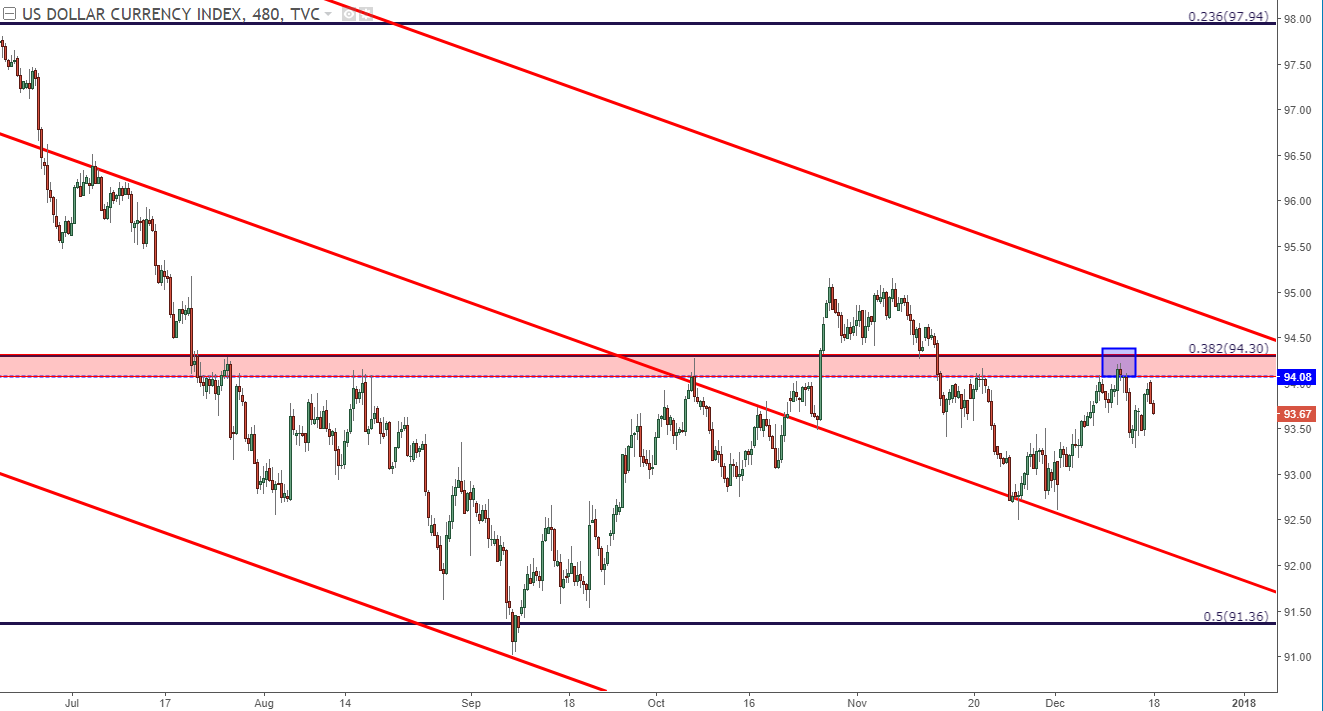Understanding The Recent Market Shift: Euro Strength And US Weakness Via Swissquote Bank

Table of Contents
Factors Contributing to Euro Strength
Several interconnected factors have contributed to the recent surge in the Euro's value against the US dollar and other major currencies. Understanding these factors is crucial for navigating the complexities of Forex trading.
Improved European Economic Outlook
The Eurozone has exhibited positive economic indicators, boosting investor confidence and driving demand for the Euro. Key improvements include:
- Stronger GDP Growth: Recent data suggests a robust recovery in the Eurozone, surpassing initial expectations. This positive trend reflects increased consumer spending and business investment.
- Controlled Inflation: While inflation remains a concern, recent data shows signs of moderation, easing fears of runaway price increases. The European Central Bank's (ECB) monetary policy, while tightening, is showing signs of effectiveness.
- Robust Employment Numbers: Unemployment rates across the Eurozone have fallen, signifying a healthy labor market and supporting consumer spending.
The ECB's monetary policy decisions have played a significant role. While interest rate hikes have been implemented to combat inflation, they have also been carefully managed to avoid stifling economic growth. This measured approach has contributed to a more optimistic outlook for the Eurozone economy and consequently, increased demand for the Euro.
Geopolitical Factors Influencing the Euro
Geopolitical events, particularly the ongoing war in Ukraine and the resulting energy crisis, have had a complex impact on the Euro. While initially causing uncertainty, the Eurozone's resilience in the face of these challenges has, paradoxically, strengthened investor confidence.
- Resilience to Energy Crisis: The Eurozone has demonstrated a remarkable ability to adapt to the energy crisis, diversifying its energy sources and implementing energy-saving measures. This resilience has been viewed positively by investors.
- Strategic Importance: The Eurozone's strategic importance in global affairs, particularly in relation to the ongoing conflict in Ukraine, has also contributed to investor confidence. The Euro's relative stability amidst geopolitical turmoil has made it an attractive currency.
- Capital Flows: Despite the challenges, the Eurozone has continued to attract foreign investment, reflecting confidence in its long-term economic prospects.
Relative Strength Against Other Currencies
The Euro's strength isn't solely defined by its performance against the US dollar. Its value relative to other major currencies, such as the British Pound (GBP) and the Japanese Yen (JPY), also reflects underlying economic and geopolitical factors. Analyzing these currency pairs (EUR/USD, EUR/GBP, EUR/JPY) offers a more complete picture of the Euro's overall strength in the foreign exchange market. The cross-currency dynamics reveal the interplay of multiple global economic forces affecting the Euro's value.
Reasons Behind US Dollar Weakness
The relative weakness of the US dollar can be attributed to a combination of domestic economic factors and shifts in global investor sentiment.
Inflation and Interest Rate Expectations
High inflation in the US has been a primary driver of the dollar's decline. The Federal Reserve (Fed)'s response, while aiming to curb inflation through interest rate hikes, has created uncertainty in the market.
- High Inflation: Persistent high inflation erodes the purchasing power of the dollar, making it less attractive to investors seeking to preserve their capital.
- Interest Rate Hikes: While interest rate hikes aim to control inflation, they also increase borrowing costs, potentially slowing economic growth and reducing the attractiveness of dollar-denominated assets.
- Inflation Expectations: Market expectations regarding future inflation play a crucial role. If inflation is expected to remain high, the dollar's value is likely to remain under pressure.
US Economic Uncertainty
Concerns about the US economy's future trajectory have contributed to the dollar's weakness.
- Recession Risks: The potential for a recession in the US has increased investor uncertainty, leading to a flight to safety and a reduction in demand for the dollar.
- Political and Economic Risks: Political polarization and potential economic policy uncertainty may also be contributing to investor hesitation, reducing demand for US assets and the dollar.
Safe Haven Demand Shifting
Historically, the US dollar has been considered a safe haven asset during times of global uncertainty. However, investors are increasingly diversifying their portfolios, seeking alternative safe havens.
- Shifting Preferences: Investors are exploring other safe haven assets such as gold, the Swiss franc (CHF), and the Japanese yen (JPY). This shift in preference is contributing to reduced demand for the dollar.
- Relative Attractiveness: The relative attractiveness of these alternative safe haven assets is influenced by factors like economic stability, geopolitical considerations, and interest rate differentials.
Conclusion: Understanding the Recent Market Shift: Key Takeaways and Next Steps via Swissquote Bank
The recent strengthening of the Euro and weakening of the US dollar reflect a complex interplay of economic and geopolitical factors. Improved economic prospects in the Eurozone, the Eurozone's resilience to the energy crisis, and shifts in investor sentiment towards alternative safe haven assets are key drivers. Conversely, high inflation in the US, concerns about a potential recession, and a shift in investor preferences away from the dollar as a safe haven have all contributed to its relative weakness.
Swissquote Bank provides a comprehensive platform for understanding these market dynamics and developing informed trading strategies. Their resources offer in-depth analysis and tools to navigate the complexities of the foreign exchange market. To stay ahead of the curve in Forex trading and gain valuable insights into Euro strength, US dollar weakness, and currency market analysis, explore the resources available at [link to relevant Swissquote Bank page]. By leveraging the tools and information provided by Swissquote Bank, you can make more informed decisions in this dynamic market.

Featured Posts
-
 Vermont Announces 2025 Presidential Scholars Celebrating Academic Excellence
May 19, 2025
Vermont Announces 2025 Presidential Scholars Celebrating Academic Excellence
May 19, 2025 -
 Eurovision 2025 Speculation Mounts Over Jamalas Participation
May 19, 2025
Eurovision 2025 Speculation Mounts Over Jamalas Participation
May 19, 2025 -
 Reaktioner Pa Pedro Pascals Kritik Av J K Rowling
May 19, 2025
Reaktioner Pa Pedro Pascals Kritik Av J K Rowling
May 19, 2025 -
 Sesion Del Cne Preocupacion Por La Presencia Militar
May 19, 2025
Sesion Del Cne Preocupacion Por La Presencia Militar
May 19, 2025 -
 Eurosong 2024 Marko Bosnjak Predstavlja Hrvatsku
May 19, 2025
Eurosong 2024 Marko Bosnjak Predstavlja Hrvatsku
May 19, 2025
Latest Posts
-
 L Tzoymis Kai I Enallaktiki Toy Gia To Kypriako O Dromos Toy Kateynasmoy
May 19, 2025
L Tzoymis Kai I Enallaktiki Toy Gia To Kypriako O Dromos Toy Kateynasmoy
May 19, 2025 -
 To Kypriako Zitima Kateynasmos I Antiparathesi I T Hesi Toy L Tzoymi
May 19, 2025
To Kypriako Zitima Kateynasmos I Antiparathesi I T Hesi Toy L Tzoymi
May 19, 2025 -
 Times Kaysimon Kypros Enimeromenos Odigos
May 19, 2025
Times Kaysimon Kypros Enimeromenos Odigos
May 19, 2025 -
 Kypriako I Simasia Toy Kateynasmoy Enanti Tis Antithesis
May 19, 2025
Kypriako I Simasia Toy Kateynasmoy Enanti Tis Antithesis
May 19, 2025 -
 Anazitisi Gia Fthina Kaysima I Kypros Se Arithmoys
May 19, 2025
Anazitisi Gia Fthina Kaysima I Kypros Se Arithmoys
May 19, 2025
